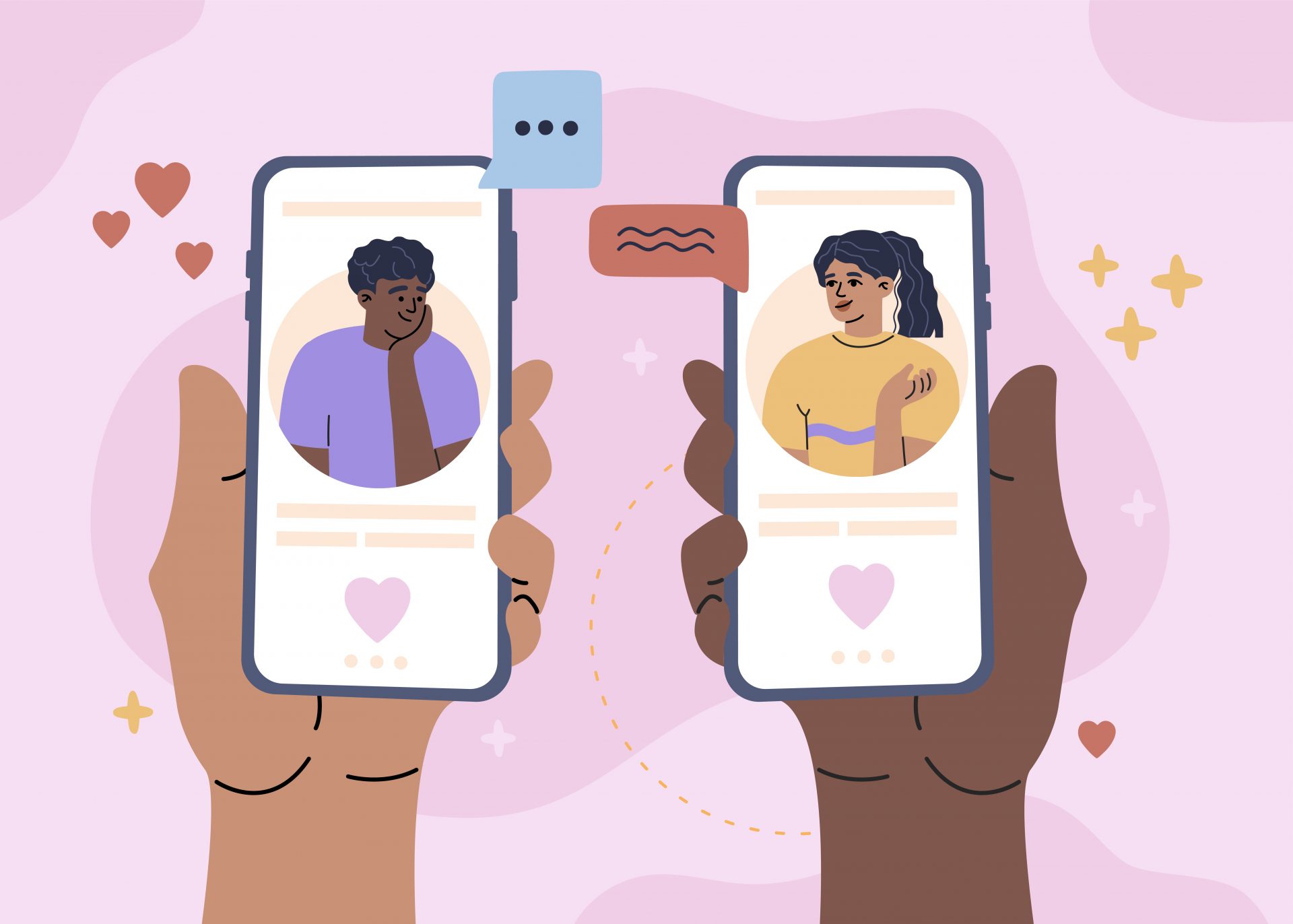Written by Amy Beecham
Why we should be wary of how we discuss past bad relationships with new partners, according to a relationship coach.
Talking about your past relationships on a date is generally considered a faux-pas, with references to bad breakups and “crazy exes” serving as a bright red flag for many.
While there’s usually nothing wrong with openly discussing your relationship history with a potential partner, getting caught up in reliving past hurt isn’t healthy for either party, especially if it’s one-sided.
However, when we let emotional baggage rule our behaviours in the present, we fall into the dangerous territory of trauma dumping on our partners without preparing them first for the emotional impact.
“Trauma dumping is a coping mechanism that can certainly have a negative impact on relationships,” Mandy Mee,a matchmaker and relationship coach at The MME Agency tells Stylist.
In any social situation, having someone unexpectedly off-load their traumatic thoughts, feelings, energy and experiences can be difficult to navigate, but can be even harder to process in romantic relationships.
“Unlike venting about the inflation of groceries or disagreement with a colleague at work, trauma dumping can be perceived as toxic by the listener,” Mee continues. “It creates an unpleasant atmosphere especially if your partner lacks the capacity to take in such information.”
Why do people trauma dump in relationships?
When we’re getting to know someone, we often turn to sharing intimate information, such as childhood memories, family stories and past experiences as a way of bonding. And it’s not uncommon for questions like “when was your last relationship?” and “why are you single?” to come up early on in the dating experience.
However, while this may feel like an invitation to get up close and personal, and people who share their trauma may feel a sense of relief, the listener may experience anxieties and stress because all that energy has been transferred on to them.
After all, emotional vulnerability is healthy, emotional dumping is not.
“People who trauma dump should be mindful of the time and environment they choose to share their trauma,” warns Mee. “Processing past trauma can be challenging. Events that lead people to trauma can have a significant effect on their personal relationships, alter consciousness, influence beliefs, have a negative impact on one’s self esteem, and confidence.”
Instead, she stresses that asking permission to share before doing so is important so your partner can prepare themselves to listen and empathise.
“Although your partner may empathise with your traumas, they aren’t your therapist or coach and therefore are incapable of giving you non-judgemental guidance.
“They can be a vessel to vent to but remember that venting and trauma dumping are not the same. Venting about your social life is healthy, you may not require any advice or solution, you just need to let out your frustration.Trauma dumping is toxic and there’s only so much someone can bear before being overwhelmed with too much information.”
Should you talk about past relationships with a new partner?
Betrayal and heartbreak are always difficult to come to terms with, and it absolutely takes time to rebuild trust in new love interests.
It’s okay to have emotional scars, no one is perfect, but before cultivating a new relationship, Mee advises starting your own healing process so the scabs from the wounds caused by past relationships don’t impactthe positive experiences you hope to create with your new partner.
“Some people are able to overcome trauma, others tend to find ways to cope with it. Self-development, mindfulness or mindful meditation and therapy are a few ways to process trauma,” she explains.
“Whenever you feel triggered, or perhaps a conversation with your new partner serves as a reminder of a negative experience with an ex, take note and responsibility of these traumas, feel every emotion without self-judgement.
“Although trauma dumping may be done unconsciously, understanding that your partner is a human who has their own experiences and possible traumas is important. You don’t want a situation where an oversharing of your own trauma triggers theirs, causing more toxicity in the relationship.
“Unlike a therapist who can listen to your trauma from a non-judgemental perspective, help you learn from it and move on, your partner may lack the capacity to guide you through the process. So it’s always best to talk to a professional.”
If you, or someone you know, is struggling with their mental health or emotional wellbeing, you can find support and resources on the mental health charity Mind’s website and NHS Every Mind Matters or access the NHS’ guide to local mental health helplines and organisations here.
If you are struggling, you can also ask your GP for a referral to NHS Talking Therapies, or you can self-refer.
You can also call the Samaritans in the UK on 116 123 or email [email protected] for confidential support.
Images: Getty
Source: Read Full Article


